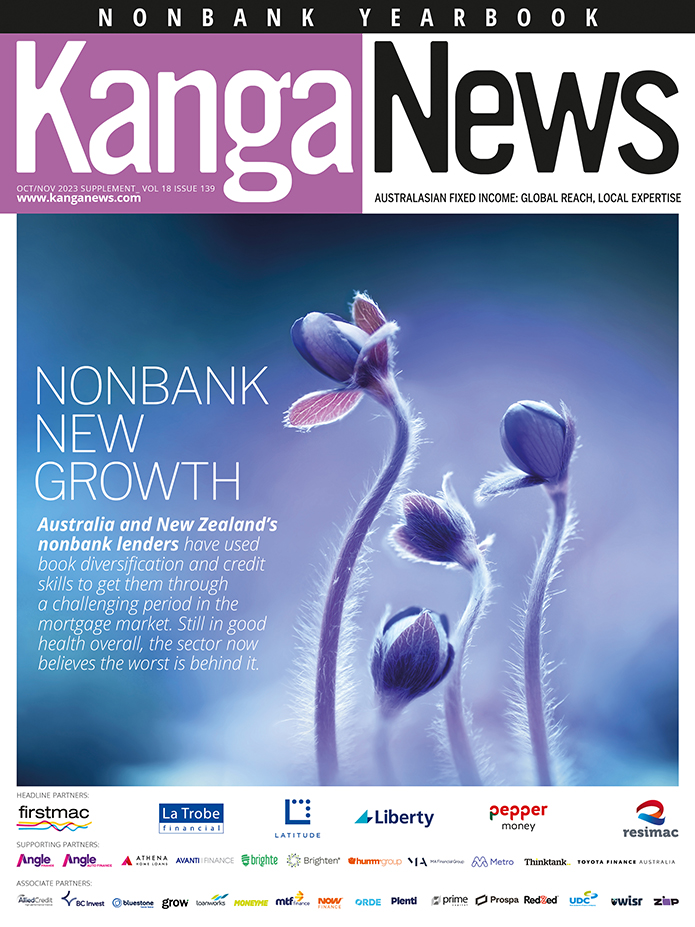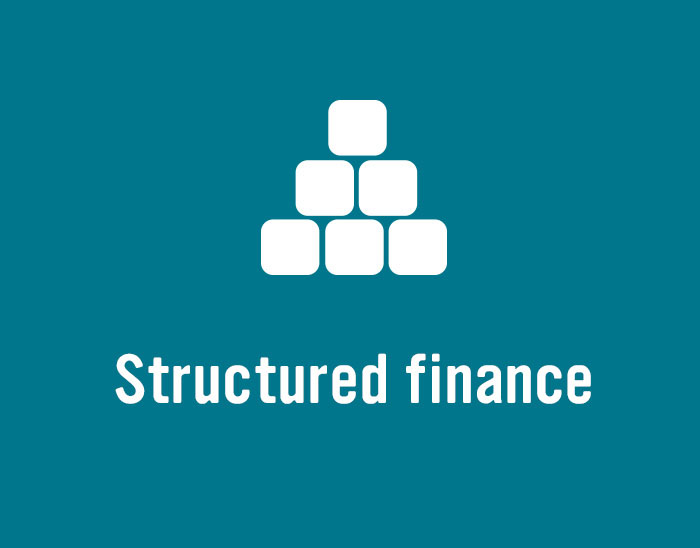
The impact of a permanent rule 17g-5 exemption on Australian securitisers
The territorial scope of the amendments by the Securities and Exchange Commission (SEC) to rule 17g-5 of the US Securities Act (rule 17g-5) are broad and cover various product types. Leading US law firm, Mayer Brown, shares vital insights into how the amendments and the proposed permanent exemption could affect Australian securitisers.
This article first appeared in the November 2018 edition of ASJ, the official magazine of the Australian Securitisation Forum (ASF). Click here to see ASJ in full at the ASF website.
US regulations for nationally recognised statistical rating organisations (NRSROs) took effect in June 2010. Among many changes, the SEC amended rule 17g-5 to facilitate unsolicited ratings from NRSROs that were not hired to rate particular asset-backed securities (ABS) and other structured-finance products.
The amendments, which are collectively referred to as the “website rules”, enable non-hired NRSROs (accessing NRSROs) to access the same rating-related information as NRSROs that are hired (hired NRSROs) to rate the relevant transaction.
The website rules are relevant to any issuer of a structured-finance product that is rated by an NRSRO, including non-US issuers, and even transactions that have no US investors or other connection to the US. Standard practice for Australian market participants issuing securities into the US has been to comply with rule 17g-5 if the transaction did not fall under temporary exemption.
Specific steps
While the website rules only apply directly to NRSROs, they also necessitate significant efforts by issuers, sponsors and intermediaries assisting with the rating process. The adopting release for the website rules uses the term “arranger” to refer collectively to issuers, sponsors and underwriters that may be required to maintain websites in compliance with rule 17g-5.
However, issuers or sponsors have usually been the parties that actually carry out these responsibilities on behalf of all transaction parties because they generally hire NRSROs and have a significant interest in controlling rating-related information.
Paragraph (b)(9) of rule 17g-5 identifies “issuing or maintaining a credit rating for a security or money-market instrument issued by an asset pool or as part of any asset- or mortgage-backed securities transaction” as a conflict of interest for an NRSRO. In other words, a structured-finance product that was paid for by an arranger.
The idea behind the rule was to create a market where accessing NRSROs would access information provided to hired NRSROs and provide unsolicited ratings on ABS and money-market instruments free from potential conflicts of interest and self-dealing that may taint ratings paid for by the deal parties rather than investors as users of the ratings.
The rule is well grounded in theory but, in practice, no NRSRO has accessed information made available by the rule to issue an unsolicited rating. This caused many industry participants to question continued compliance with the rule for US transactions that have not benefited from the temporary foreign-issuer exemption.
In order to issue or maintain ratings on structured-finance products where the rating is paid for by an arranger, paragraph (a)(3) of rule 17g5 requires hired NRSROs to take specified steps, which the SEC intends as mitigants to the impact of the conflict of interest by facilitating unsolicited ratings.
Specifically, a hired NRSRO that wishes to issue or maintain such a rating must fulfil certain criteria. The first is maintaining on a password-protected website (a hired NRSRO site) a list (the ratings-in-process list) of each structured-finance product for which it is currently in the process of determining an initial credit rating, with specified information including the name of the issuer, the date the rating process was initiated and the address of a password-protected website (an arranger site) where an arranger is maintaining the transaction-related information.
The second is providing access to its hired NRSRO site to accessing NRSROs, subject to certain certification requirements.
Third is obtaining a written representation that can reasonably be relied upon from an issuer, sponsor or other arranger of each structured-finance product on the hired NRSRO’s ratings-in-process list to the effect that the issuer or other arranger will maintain an arranger site containing rating-related information.
This must provide accessing NRSROs access to the arranger site, subject to certain certification requirements. It must also post on the arranger site all the information the arranger provides, or contracts with a third party to provide, to the hired NRSRO for the purpose of determining the initial credit rating for the structured-finance product or rating surveillance, all in a manner indicating which information currently should be relied on to determine or monitor the credit rating.
While arrangers are not directly subject to the website rules, it is clear the SEC intends to take seriously any failures by arrangers to perform the obligations they undertake. NRSROs will essentially not be permitted to provide ratings unless arrangers undertake those obligations.
“The rules are relevant to any issuer of a structured-finance product that is rated by an NRSRO, including non-US issuers, and even transactions that have no US investors or other connection to the US.”
Extraterritorial reach
The website rules are silent as to their territorial reach, focusing instead on the activities of NRSROs. Prior to adoption of the website rules, the major credit-rating agencies active in the US had registered not only themselves but also all or most of their foreign affiliates as NRSROs.
As a result, the website rules appear to apply to all ratings on structured-finance products issued by any US rating agency or any of their foreign affiliates. This would include transactions conducted wholly outside the US where the only US connection is a rating by an entity that is registered as an NRSRO. In other words, an NRSRO that provides a rating for a structured-finance product that has a non-US issuer and a non-US sponsor and is sold entirely to non-US investors would still be subject to these rules and would need to seek compliance by the arrangers of that transaction.
Staff from several non-US securities regulators, as well as a number of market participants, notified the SEC that arrangers of structured-finance products located outside the US generally had not been aware of the extraterritorial reach of the rules and would not be prepared to comply with them.
This created potential disruption of any new issuance activity in local securitisation markets. The non-US securities regulators and European issuers also expressed concern about possible conflicts between the website rules and EU data-protection and bank-secrecy law, rating regulations and possibly other EU and national laws.
Responding to these concerns, in May 2010 the SEC issued an order granting a temporary exemption from the website rules for transactions in which the issuer is a non-US person and the hired NRSRO has a reasonable basis to conclude that the structured-finance product will be offered and sold upon issuance, and that any arranger linked to the structured-finance product will effect transactions after issuance only in transactions that occur outside the US.
This exemption only applied until December 2010, but it has been periodically and continuously extended for additional temporary periods since then. The exemption, however, does not apply if a structured-finance product issued by a non-US person is being offered in the US or otherwise to US persons – for example, in a combined rule 144A/Reg S offering.
After several extensions of the original temporary exemption, in September 2018 the SEC proposed a permanent exemption from rule 17g-5 with respect to credit ratings, if the issuer of the security or money-market instrument referred to in the rule is not a US person and the NRSRO has a reasonable basis to conclude that all offers and sales of such security or money-market instrument by any issuer, sponsor or underwriter linked to such security or money-market instrument will occur outside the US.
The requirement that all offers and sales of such security or money-market instrument occur outside the US should not require a prohibition in secondary trades to US persons if those secondary trades are not initiated by the issuer, the sponsor or an underwriter. It would, however, be prudent for all parties to the underwriting or subscription agreement for a rated non-US offering to covenant to each other that they will not engage in offers and sales of securities or money-market instruments that would make the exemption unavailable.
The SEC also proposed conforming amendments to similar exemptions in rules regarding reporting of due-diligence services, specifically rule 17g-7(a) and rule 15Ga-2. If adopted, the proposed rule would effectively make permanent the temporary conditional relief provided by the SEC.
Compliance burden
The proposed permanent exemption will codify market practice for offshore securitisers that issue securities outside the US. Given no known accessing NRSRO has attempted to access a hired NRSRO site or arranger site, the necessity of rule 17g5 is debatable. But, even so, until now there has not been much traction towards a permanent exemption for offshore securitisers issuing into the US.
Should the SEC adopt the proposed exemption in its current form, participants in US transactions might petition the SEC for relief from some or all aspects of the rule. They would have grounds for doing so. It is hard to argue that investors have benefited from the additional compliance burden that has been placed on transactions to achieve compliance with the rule.
For further information please contact:

nonbank Yearbook 2023
KangaNews's eighth annual guide to the business and funding trends in Australia's nonbank financial-institution sector.








